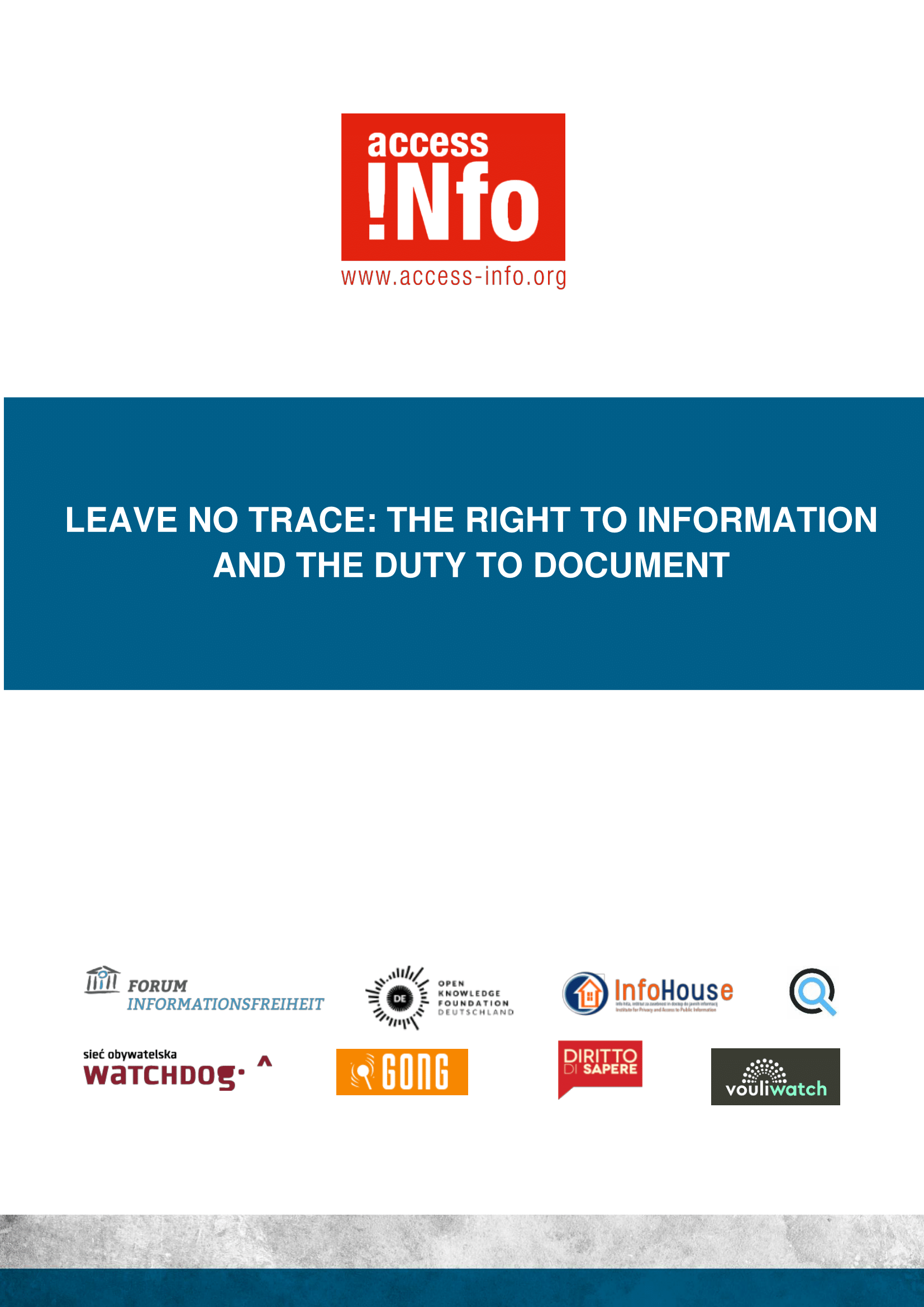This report, Leave No Trace, contains the first comprehensive research into the laws, guidelines, and practices on record keeping across a range of 12 European jurisdictions and the European Commission.
It reveals an extremely weak legal infrastructure and hugely variable practice on record keeping, which is undermining the public’s right of access to information: it is impossible to obtain documents that do not exist.
The report contains a comparative analysis of the of laws, guidelines, and practices as they relate to the creation and maintenance of information needed for participation and accountability.
The direct consequence of the lack of clear-cut rules requiring public bodies to keep track of the decisions has been revealed by Access Info’s Decision-Making Transparency project, conducted with partners across Europe: in many instances essential documents – such as minutes of meetings, including those with outside lobbyists, legal opinions, advice or evidence used in formulating policies, and justifications of decisions – simply did not exist.
Furthermore, access to information laws have failed to anticipate this problem and do not contain provisions requiring that decision making be documented.
Leave No Trace found that only one jurisdiction, Scotland, has specific requirements that particular types of records of government decision making be created: a specific “duty to document” clearly set out in law with a specific oversight mechanism.
For the remainder of the countries surveyed, some have guidelines on good administration, and some others have good practices, developed organically over time. This is generally positive although we also found, as this report sets out in detail, instance where such practices have evolved separately within the same bureaucratic ecosystem, resulting in a proliferation of disparate record-keeping systems of varying quality. There is clearly a pressing need to harmonise the rules and practice in many of the jurisdictions studied.
The picture is not totally bleak however: many countries have provisions requiring particular types of records to be created. Importantly, in at least some of these jurisdictions – in particular Finland, Italy, Slovenia, Sweden and the United Kingdom – there are oversight mechanisms, and sometimes sanctions can be imposed for non-compliance.
The report also contains recommendations for governments as to how to ensure the existence to of records of decision-making processes, and this is an agenda that Access Info encourages the right to information community to join us in promoting:
» The legal framework should require the creation and proactive publication of information needed to participate in and hold to account decision-making processes;
» Information such as appointments diaries of people responsible for decision making;
» The legal framework should make clear which decision-making related information should be published and within what timeframe;
» There should be adequate training of all public officials on record-keeping obligations;
» An appropriate oversight mechanism – such as an information commissioner – should be established and should be empowered to conduct on-site inspections and to impose sanctions for non-compliance.
The Leave no trace: the right to information and the duty to document expert paper is part of Access Info’s Decision-Making Transparency project, and can be found here: ![]()
![]()
The report is part of the on the Decision-Making Transparency project led by Access Info Europe between 2014 and 2017. For more information and materials please visit: https://www.access-info.org/decision-making-transparency

